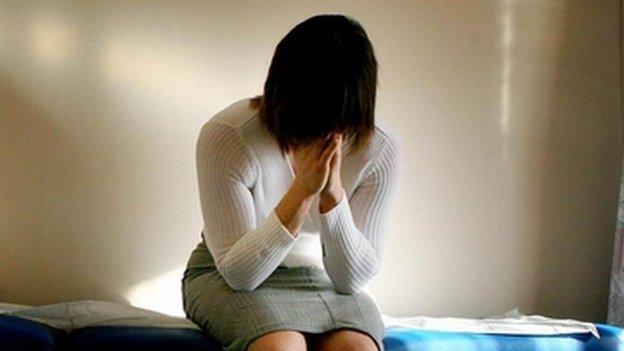Hundreds of UK sex offenders went missing, figures show
- Published
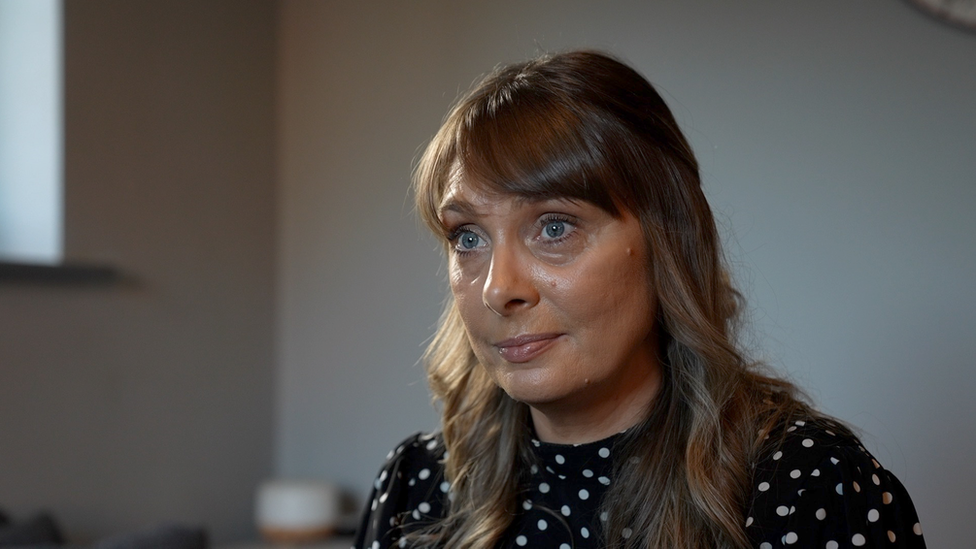
Campaigners want a 'Della's Law' to ban sex offenders changing names, named after survivor Della Wright
Hundreds of sex offenders across the UK slipped off the radar of police in a three-year period, the BBC can reveal.
Freedom of Information requests by BBC News to 45 police forces reveal 729 sex offenders had gone missing or were wanted for arrest from 2019-2021.
Abuse survivors have called on the government to introduce a new law to ban sex offenders changing their names.
The Home Office says it has "some of the toughest powers in the world to deal with sex offenders".
Calling the situation a scandal, MP Sarah Champion said the key reason so many offenders went missing was because they had changed their names.
Perpetrators should not be able to change their names and escape the authorities and their pasts, according to campaigners. MPs were due to discuss the issue on Thursday.
The BBC Shared Data Unit also found that almost 1,500 registered sex offenders notified police forces of lawful name changes. Twenty-one police forces provided those figures.
The campaign group, the Safeguarding Alliance, has raised the scale of this issue since 2019.
There are around 67,000 registered sex offenders living in the UK.
Name changes 'scandal'
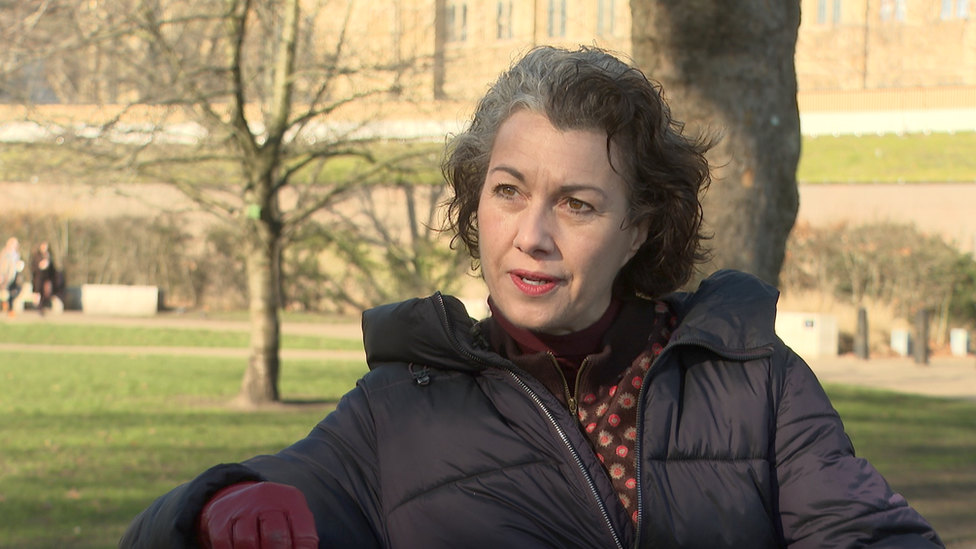
Sarah Champion MP said this issue had been "dumped in the 'too difficult' drawer."
Critics say the law is too easy to bypass because it places the onus on offenders to report changes in their circumstances.
Ms Champion is the Labour MP for Rotherham, where at least 1,400 children were the victims of abuse between 1997 and 2013.
She previously raised in Parliament registered sex offenders were changing their names then applying for fresh identity documents, allowing them to potentially secure jobs working with children.
The costs ranged from £42.44 for an enrolled deed poll, external, where the applicant's new name was added to public records.
Some offenders were changing their names while in prison by paying an administration fee of £15 for a "do-it-yourself" unenrolled deed poll, external which required two witnesses, she previously told Parliament, external.
Ms Champion said: "Clearly, the current system of notification isn't working. The sheer scale of breaches and sex offenders going missing is a scandal, but one the public don't know about."

What is the current law?
If someone is added to the Sex Offenders Register, they are required to provide certain personal details, external to the police, including their name, any aliases they have been known by, their current address and passport details.
They have to visit a police station annually to comply with notification requirements, and to inform the authorities of any change to personal details.
If any of these personal details change, they must notify the police within three days or offenders can face up to five years in prison.
Chief Constable Michelle Skeer, national lead for the management of sex offenders, said whilst anybody could change their name, these additional legislative obligations were monitored closely.

Della Wright wants sex offenders to be banned from changing their name once they are added to the register.
She was abused at the age of six by Terry Price, who was sentenced in 2017 to 22 years in prison with a five-year extension after being found guilty of sex offences involving children.
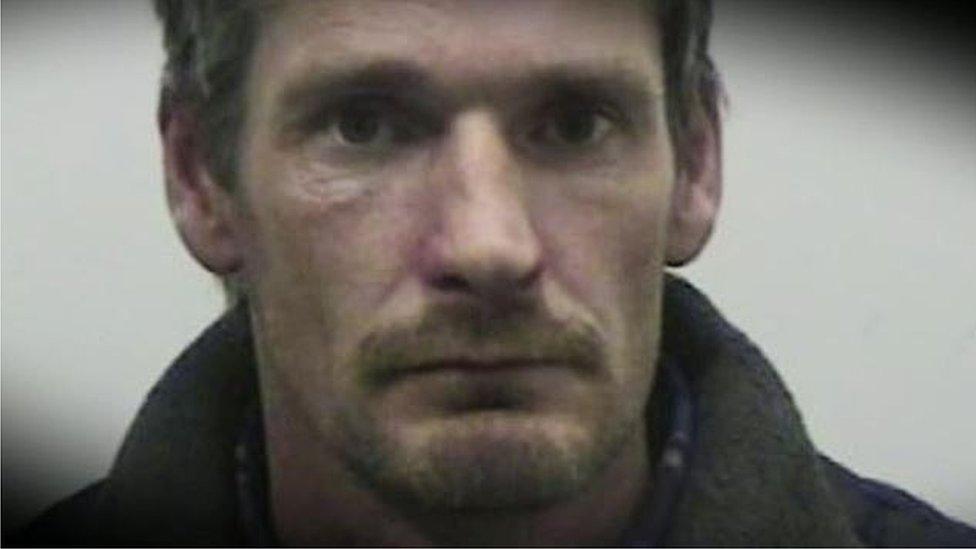
Mister Mac, now aged 60, was known as Terry Price when he abused Della Wright
Now aged 60, he had changed his name before going on to offend again, as well as changing his name again between court hearings to Mister Mac. She says the system is "far too simplistic" and "open to abuse."
"It shouldn't be for victims and survivors to beg Government to do something about this. We're still having to ask in 2023."
"It affects everything," she said of her abuse. "Since the court case, my whole world has become very small. I used to like music and festivals but I don't go anywhere. I can't travel by myself."
Ms Wright, from Warwickshire, who has waived her right to anonymity, said: "We put our faith in DBS but it's a false sense of security."

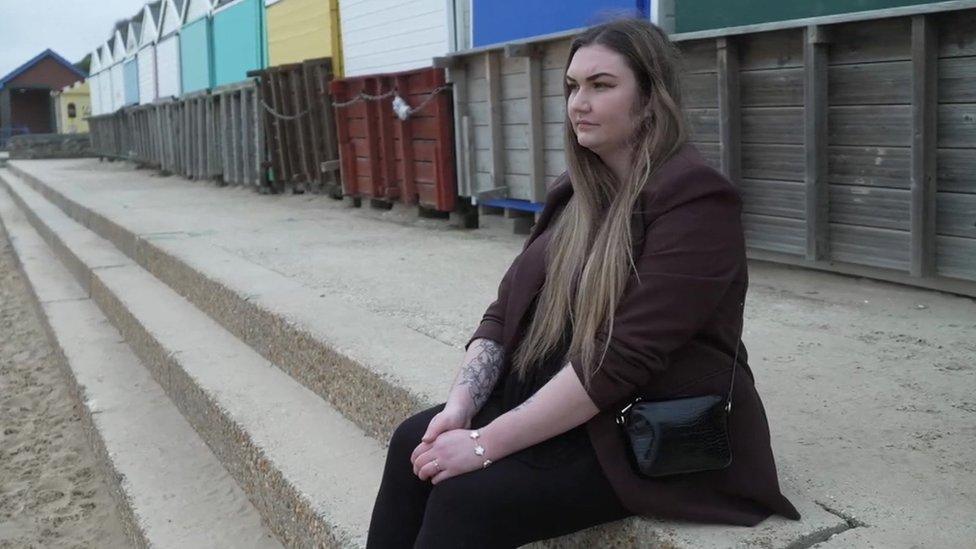
Survivor Lauren-Eden Sullivan said her experience would never leave her
At the age of 14, Lauren-Eden Sullivan was abused by her biological father, Shaun Dallisson. She has also waived her right to anonymity.
He was sentenced to eight years in prison in 2014 but has changed his name and moved to a new area since being released on licence.
She says that registered sex offenders shouldn't be able to change their names.
"It's not something that ever leaves the victim so why should the person that's done it be able to escape it so easily," she said.
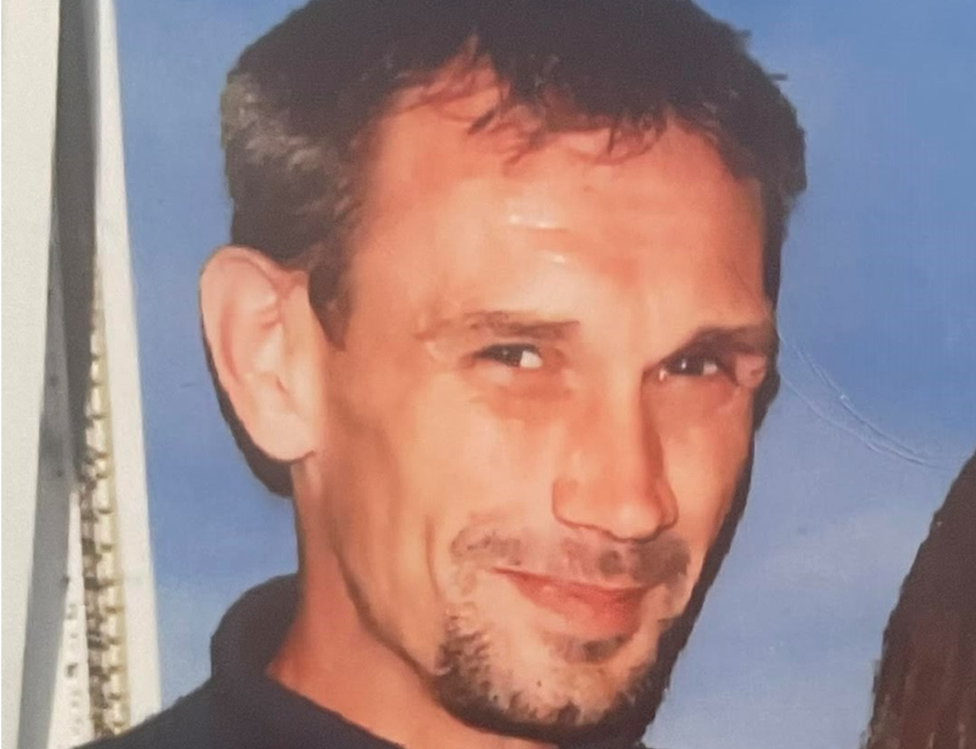
Lauren-Eden Sullivan said her abuse by Shaun Dallisson led her to 'spiral' as a teenager into taking drugs
Donald Findlater, director at the Lucy Faithfull Foundation charity, which is dedicated to preventing child sexual abuse, said some offenders changed their name to build a better life and not offend in future, or to "protect their family from the stigma of their identity".
He said the 1,500 sex offenders who notified police forces of lawful name changes was "exactly as it should be" because they followed the rules.
The former chief of Derbyshire police, Mick Creedon, was appointed, external in March by then-Home Secretary Priti Patel to review the police's management of registered sex offenders.
A separate internal review was also carried out into the scale and nature of offenders changing their name. The Home Office said ministers were considering both reports but have not published the findings.
Ms Champion said: "It's troubling that money and resources are being spent on this and we have seen no tangible results or conclusions.
"Basically, this issue has been dumped in the 'too difficult' drawer."
A Home Office spokesperson said it had strengthened its regime for managing offenders through the Police, Crime, Sentencing and Courts Act, external.
The act made it easier to impose restrictions via civil orders called Sexual Harm Prevention Orders for anyone convicted or cautioned for a sexual or violent offence.
Courts can also impose Sexual Risk Orders which can be applied to any individual shown to pose a risk of sexual harm in the UK or abroad.
The BBC's Freedom of Information requests also highlighted over the same three-year period:
There had been more than 5,500 offences committed by sex offenders of failing to comply with notification requirements, external such as not telling police they were living in a household with a child. Thirty-two police forces provided that data.
The Disclosure & Barring Service (DBS) found 2,190 applicants for checks had criminal records and they had supplied incorrect or missed out personal details such as past names or aliases.
The BBC can also reveal a total of 6,740 prosecutions began over the past three financial years for offences, external by sex offenders of breaches of a sexual harm prevention order or interim order.

If you have been affected by the issues raised in this story help and support is available via the BBC Action Line


More about this story
The Shared Data Unit makes data journalism available to news organisations across the media industry, as part of a partnership between the BBC and the News Media Association.
For more information on methodology, click here, external. For the full dataset, click here, external. Read more about the Local News Partnerships here.
Related topics
- Published28 February 2023

- Published23 November 2022
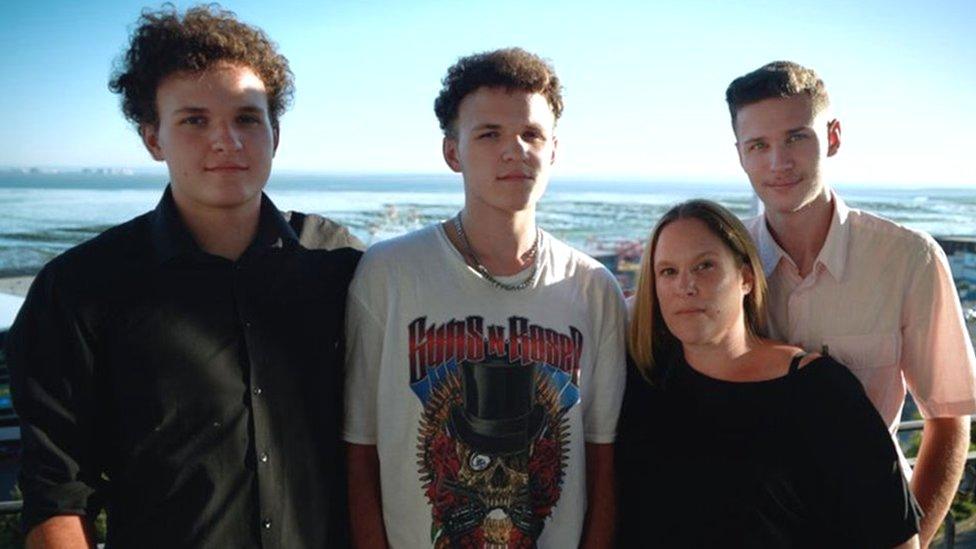
- Published16 September 2020
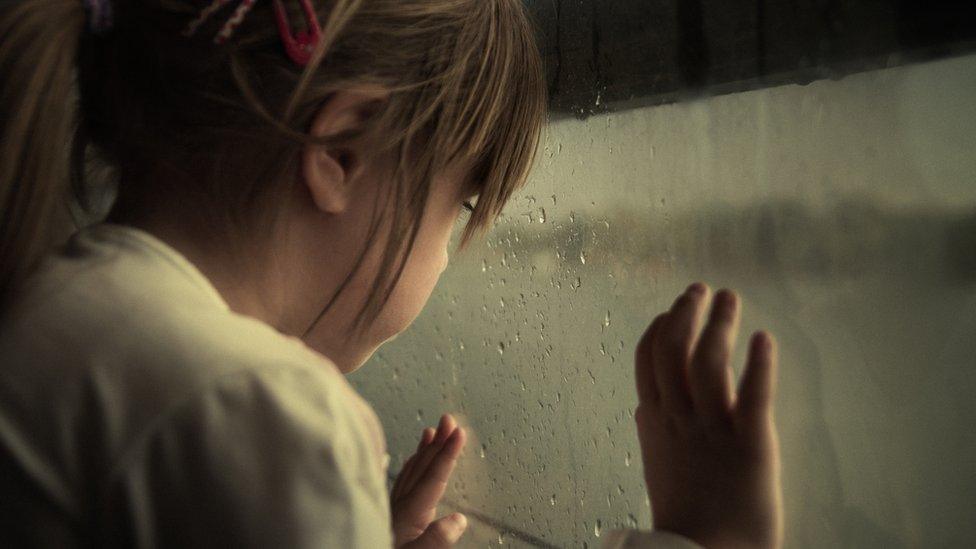
- Published10 March 2015
